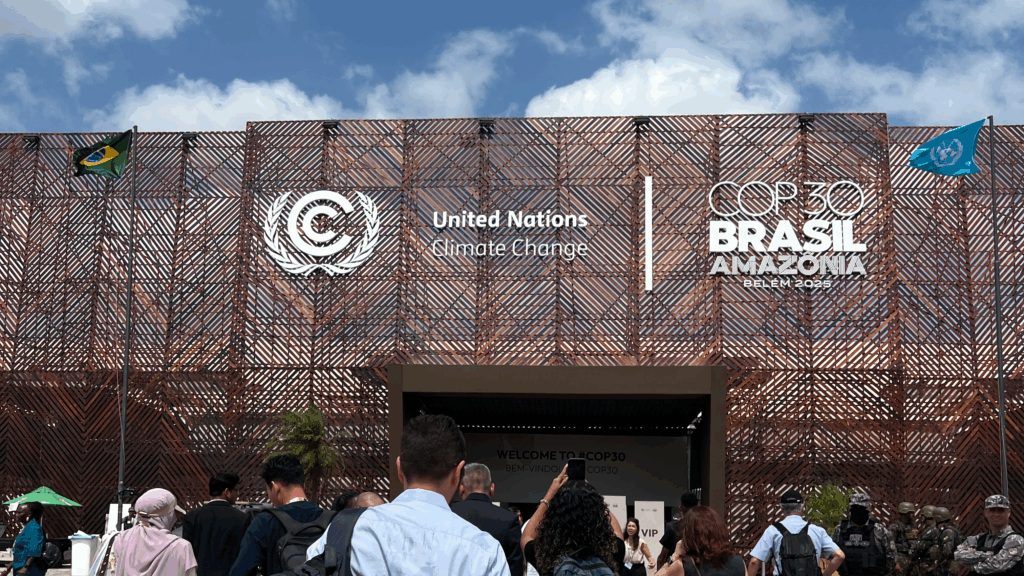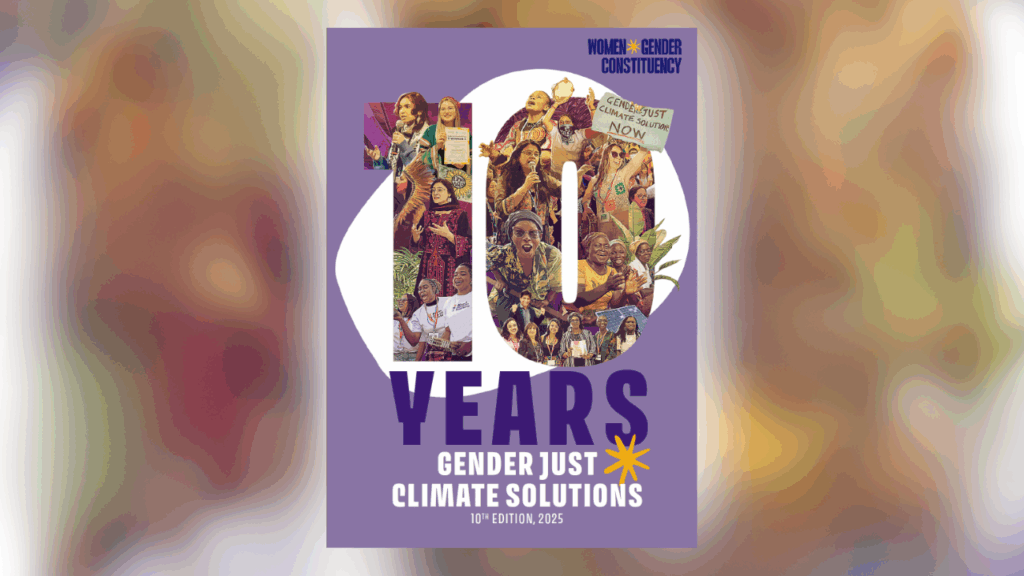
Press Release: Gender Backtracking across the negotiations at COP30

Advocates and technical experts from the Women and Gender Constituency are disheartened to see the backtracking on agreed upon language throughout the negotiation rooms. From GST to Adaptation, gender responsive climate action is a clear, consistent, and agreed upon approach towards implementing ambitious climate policy within the UNFCCC. Gender equality must be considered in conjunction with Indigenous Peoples, youth and persons with disabilities — as we understand the importance of compounding identities within those that are on the frontlines of addressing climate change. This COP of many names, must have one throughline — and that is cohesive reference and respect to gender equality as a clear and necessary to advancing the goals of the Paris Agreement.
On Climate Finance:
As negotiating blocs shamelessly try to remove references to the GCF’s long-overdue-for-an-update Gender Action Plan, as well as trying to delete the assurance of compliance with environmental and social safeguards, the Gender Policy, and the Indigenous Peoples Policy within fund implementation, we want them to feel shame as they are ultimately failing to support not only human rights, but meaningful climate action. We strengthen our resolve to remind Parties of the reality: the GCF’s longstanding Gender Policy, inter alia, is a tool to ensure equitable and effective climate action results from the provision of climate finance. It’s that simple – pushing back against gender is pushing toward a world filled with greater climate chaos and inequity.
On Mitigation:
For years, MWP decisions made no reference whatsoever to gender. Last year at COP29, parties finally agreed to include a modest nod to gender-responsive participation. This year, however, we’re right back to a gender-exclusive decision draft—erasing even that small step forward. The one bright spot: Indigenous Peoples and their knowledge, as well as informal workers, many of which are women, receive long-overdue recognition. But real progress demands that gender justice be treated as essential and explicit, not as optional.
On GST:
After two years of negotiations still we struggle to achieve fair inclusion of participation language with a gender responsive approach. The two new GST draft texts as well as the Global Mutirao Belem package have weaker gender language than the cover decision of GST 1 from COP28 in Dubai. We remind the parties and the presidency that bottom- up and grassroots participation with a clear gender responsive approach in all GST processes, brings not only more credibility and equity, but also greater climate ambition — which is what we expected from this COP of the Truth.
On Adaptation:
Gender responsive climate action is found within the negotiation texts throughout this past decade as we work towards advancing a Global Goal on Adaptation within the Paris Agreement. When we call for gender equality to be listed when considering disaggregation within the GGA, to expect (and receive) gender responsive National Adaptation Plans (NAPs), it is not just for the sake of the phrase, but rather to fully capture the role of those impacted by and implementing solutions to address climate impacts. These adaptation policy decisions at the global level directly, beyond preambulatory text, impact the ability of national implementation and processes to be done with care, gender equality, community, and all peoples at the center.
On Just Transition:
For the transition to be truly just, we must dismantle our current patriarchal and extractive systems. Feminists have been clear – gender equality is a requirement to ensure that the economy and society-wide transformations we see do not perpetuate gendered harm and the extraction of women’s work under the guise of a green transition. Despite the attempt of some actors to remove our rights or to erase our lived intersectional experiences from the text, we know that the political will for gender equality to remain in the Just Transition Work Programme text is strong, broad and global. We call on those countries committed to achieving gender equality to stand with us as vocal and fierce champions in the negotiating rooms of Belém.
____
On behalf of a select group of the Women and Gender Constituency Thematic Experts on Climate Finance (Tara Daniel, WEDO and Liane Schalatek, Heinrich Böll Foundation), Mitigation (Alba Pérez Terán, OXFAM and Shruti Sharma, IISD), Global Stocktake (Floridea Di Ciommo, cambioMO | changing mobility and Anne Barr, WECF), Adaptation (Alex Gordon, WEDO and Demet Intepe, PhD, Practical Action), and Just Transition (Sinéad Magner, WEDO and gina cortés valderrama), respectively.

